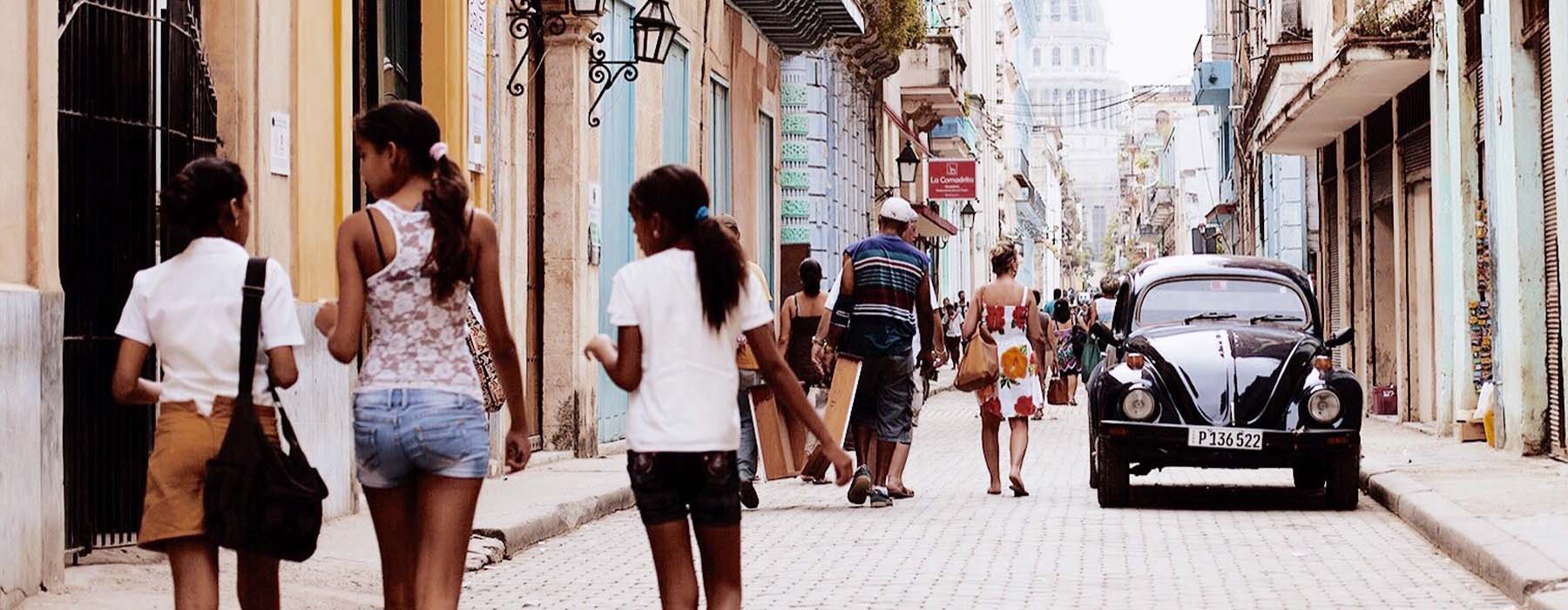Salsa
Music and dance are so much more than entertainment in Cuba, they're a part of life, especially when it comes to salsa.
Evolving over centuries, with much of the inspiration coming from the drums of Africa and guitars of Spanish conquistadors, it came under Castro's watchful eye in 1959 and as a result many clubs and live music venues closed down and performers retreated into casas de la trova (music houses), where the spirit of salsa lived on.
We can arrange musical trips to deep within the heart of Havana to areas which come alive at night, as well as salsa shows in unknown bars and tiny nightclubs. We also know the best local teachers for a private music workshop or salsa lesson, taking even the most two left footed dancer from zero to hero in a day or so. Wedding dancefloors will never be the same again.
Boxing in Havana
Despite professional boxing being banned in Cuba in 1961, amateur boxing is a seminal part of Cuban culture and the country has enjoyed sensational success in the ring, including winning 37 Olympic gold medals since it first participated in the Olympic games in 1900.
Despite professional boxing being banned in Cuba in 1961, amateur boxing is a seminal part of Cuban culture and the country has enjoyed sensational success in the ring, including winning 37 Olympic gold medals since it first participated in the Olympic games in 1900. With that in mind, where better to observe a session or even hone your own skills than in Cuba's capital Havana, home to some of the most respected boxers in the world.
Whether you're an aspiring boxer or a professional pugilist, a few hours at the legendary Rafael Trejo Boxing Gym will improve anyone's technique and get you clued up on the 'noble art'. The open-air gym is one of the most iconic in the world, where children who are just starting to learn the ropes come to find a training space alongside Cuba's Olympic champions.
Dance Day in Havana
There's music on every street corner in Cuba and toddlers learn to dance almost before they can walk, so it makes sense that the country's National Ballet School is where some of the best ballet dancers in the world are trained - including the Royal Ballet's Carlos Acosta.
The school is a fiercely protected bastion of Cuban cultural heritage, only opening its doors to a select few visitors. Those privileged enough to visit can spend a few hours at the school and meet some of the 3,000 students, watching as the ever-strict teachers drill them in eye-wateringly quick pirouettes. Ballet is seen as a way out of poverty across Cuba and most dancers choose to stay in Havana after they graduate, moving on to the Cuban National Ballet.
This evening don your glad rags and head to the Grand Theatre of Havana to see some of the best ballerinas in the world take to the stage. Under the Castro regime, the arts were given a huge amount of funding, pushing them to the forefront of Cuban entertainment, meaningthat a night at the ballet is also a chance to people watch the diverse melting pot of Cuban society in one place.
Tobacco Farm Visit
Cigars are perhaps Cuba's most famous export. Tobacco is grown among the limestone karsts of Viñales, where farmers use the same time-tested methods they've honed for centuries.
The best way to get to know Cuban cigars is to spend a day exploring the region with a private guide. You will start on an underground river, exploring the lesser-seen side of Viñales and learning about what it is that makes the tobacco grown in this region so highly revered. After a traditional Cuban lunch overlooking the valley you will set off on your walking tour. Your guide, a native of the valley, will take you into the heart of the lush plantations, explaining the history of tobacco growing as you walk. You'll end your day learning about the lifecycle of a cigar, from seedling to drying, before rolling your very own.



